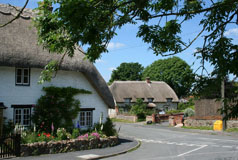
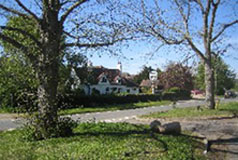
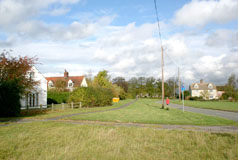
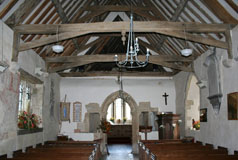

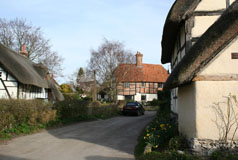
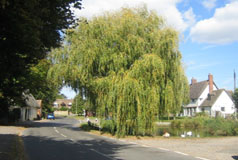
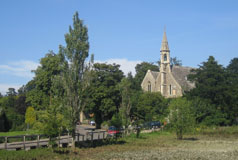
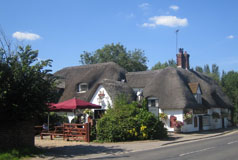
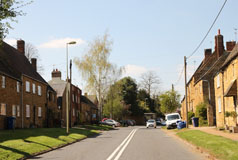
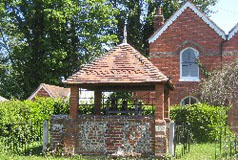
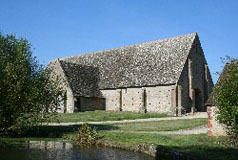
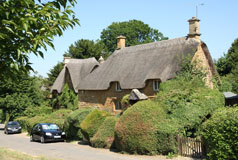
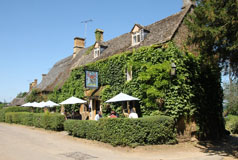
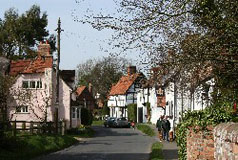
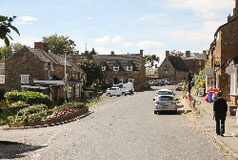
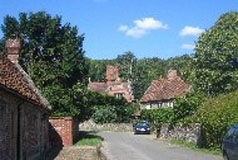
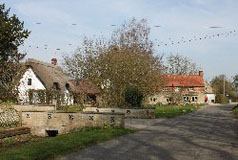
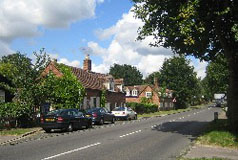

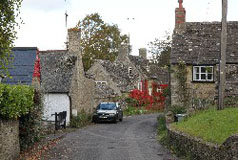
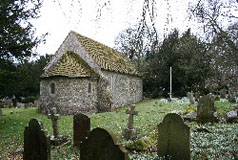
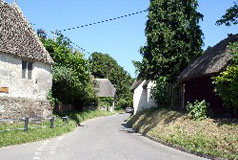
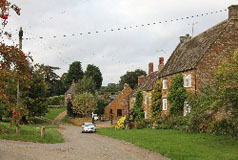

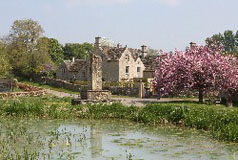
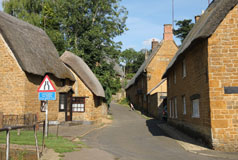
|
LITTLE WITTENHAM
Adjacent to the church is Barn Cottage, a former stable
but now a house probably dating from mid C17, with C20 alterations.
Next to Barn Cottage is The Manor House, a mid C18 red
brick house with C19 additions and alterations. The house
has grey brick headers. Elsewhere in the village are several
other attractive old houses, many of them listed and the
whole village is within a conservation area. Overlooking
the village are the Wittenham Clumps which stand on top
of the Sinodun Hills. 'Sinodun' is a Celtic name, Seno-Dunum,
meaning 'Old Fort'. In the Iron Age, the hill fort at Castle
Hill dominated the region, providing protection for
the local villagers and their animals. The
only obvious sign of the fort now is the ditch around
the base of the hill. In the clump of trees at the top
of the hill is the Poem Tree in which Joseph Tubb carved
a poem in 1844-45. Little Wittenham is on the road between Long Wittenham and Brightwell-cum-Sotwell, about three miles north-east of Didcot. |
|










